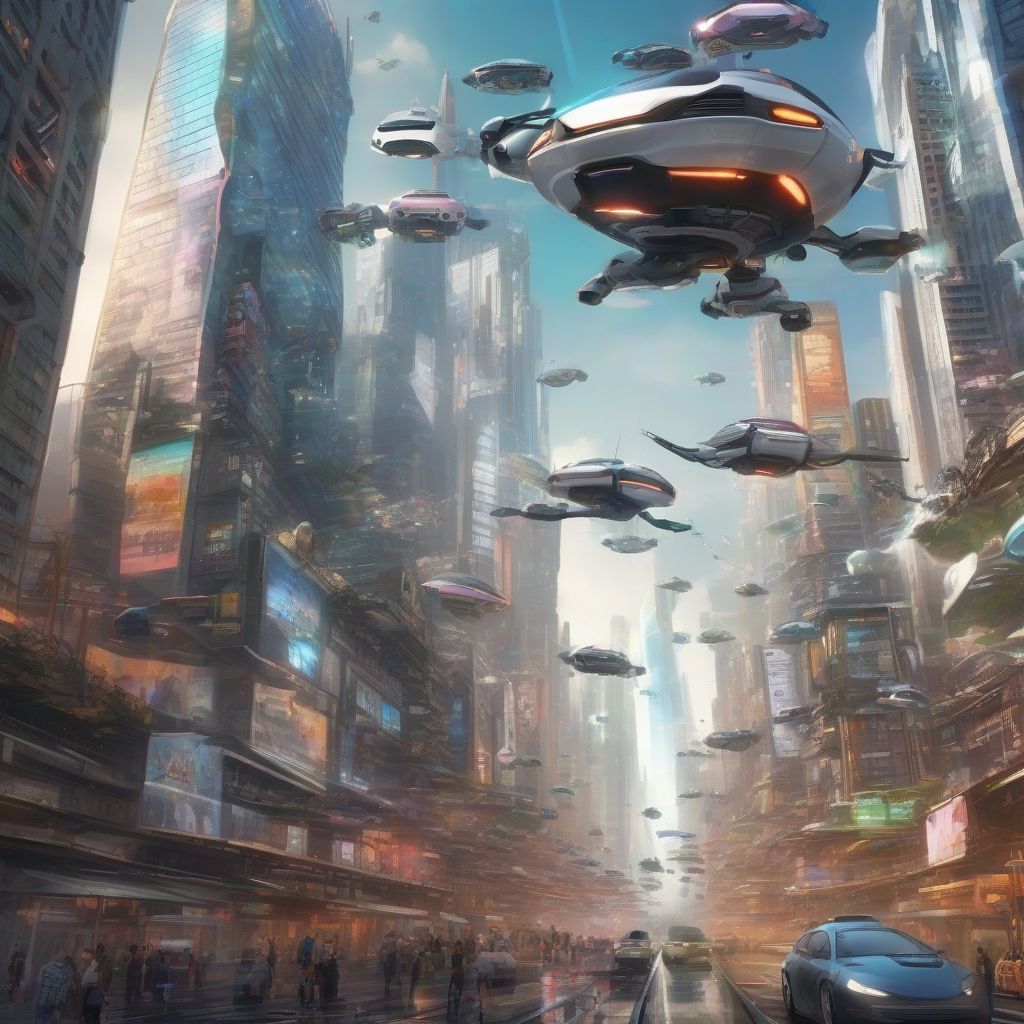Ever lay awake at night, lost in the world of a sci-fi novel, wondering how the author dreamed up such a believable future? Science fiction often holds up a distorted mirror to our own world, reflecting our anxieties, hopes, and dreams back at us. But how can we peel back the layers of spaceships and laser beams to analyze the portrayal of futuristic societies in sci-fi? Let’s dive in and equip ourselves with the tools to critically examine those captivating glimpses of tomorrow.
Unpacking the Future: Key Areas of Analysis
1. Technology: The Double-Edged Sword
Technology often takes center stage in sci-fi, and with good reason. It’s the driving force behind many societal shifts. But is this future utopia powered by clean energy and inhabited by friendly AI, or is it a dystopia ruled by surveillance and rampant automation?
- Questions to ask: What role does technology play in this society? Does it empower or enslave its citizens? Are the technological advancements presented as a force for good or evil?
 Technological Advancement in Sci-Fi Society
Technological Advancement in Sci-Fi Society
2. Social Structures: Power, Control, and the Individual
The organization of society often reveals its values. Pay attention to how people interact within this futuristic world.
- Questions to ask: Is this a society of strict hierarchies or egalitarianism? How are issues of power and control addressed? What are the dominant social norms, and how do they impact individuals?
3. Environment: A Mirror to Our Actions
The environment often serves as a powerful symbol in sci-fi, reflecting the consequences of our choices.
- Questions to ask: Is the environment thriving or ravaged? What message does this send about the society’s relationship with nature? Does the story offer a cautionary tale or a glimmer of hope for environmental sustainability?
4. Human Nature: Unchanged or Transformed?
At its core, science fiction often explores the timeless question: what does it mean to be human?
- Questions to ask: Do characters grapple with familiar human emotions and dilemmas, or have advancements altered the very essence of what it means to be human? Does the story suggest that our flaws are inherent or can be overcome?
Drawing Deeper Meaning: Context and Subtext
Analyzing sci-fi isn’t about finding the “right” answers but about engaging in a critical dialogue. Remember to:
- Consider the historical context: The author’s own time period and cultural background inevitably shape their vision of the future. Researching the historical context can offer valuable insights.
- Look for symbolism and allegory: Sci-fi often employs metaphors to explore complex themes. Don’t be afraid to dig beneath the surface and interpret the deeper meanings behind the spaceships and robots.
- Engage with the text: What resonates with you? What makes you uncomfortable? Your personal reactions can be valuable entry points for analysis.
Examples in Action: Bringing it All Together
Let’s take a look at a few classic examples to see these analytical tools in action:
-
“1984” by George Orwell: This dystopian novel paints a chilling picture of a totalitarian regime where technology is used for surveillance and control, highlighting the dangers of unchecked power and the importance of individual freedom.
-
“Dune” by Frank Herbert: Set on a desert planet, “Dune” explores the complex interplay of politics, religion, and ecology, raising questions about the long-term impact of human actions on the environment and the dangers of ecological exploitation.
-
“The Martian” by Andy Weir: This story of survival on Mars celebrates human ingenuity and resilience in the face of adversity, highlighting our capacity for problem-solving and our enduring spirit of exploration.
[amazon bestseller=”science fiction”]
A Final Thought: The Power of Imagination
Analyzing futuristic societies in sci-fi isn’t just an academic exercise; it’s an invitation to engage with our own hopes and anxieties about the future. By exploring these imaginative worlds, we can gain a deeper understanding of ourselves, our values, and the choices we face as a society. So, the next time you find yourself lost in a sci-fi world, remember that you’re not just reading a story—you’re engaging in a dialogue with the future itself.
What are your favorite examples of futuristic societies in sci-fi? What themes and questions do they explore? Share your thoughts in the comments below!
